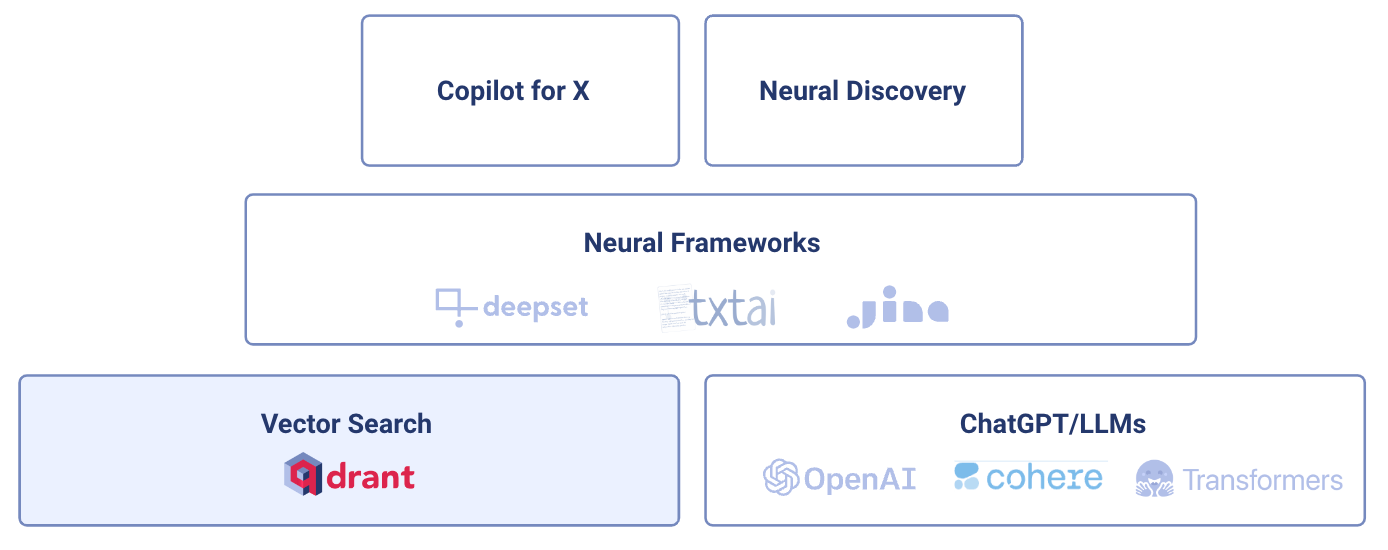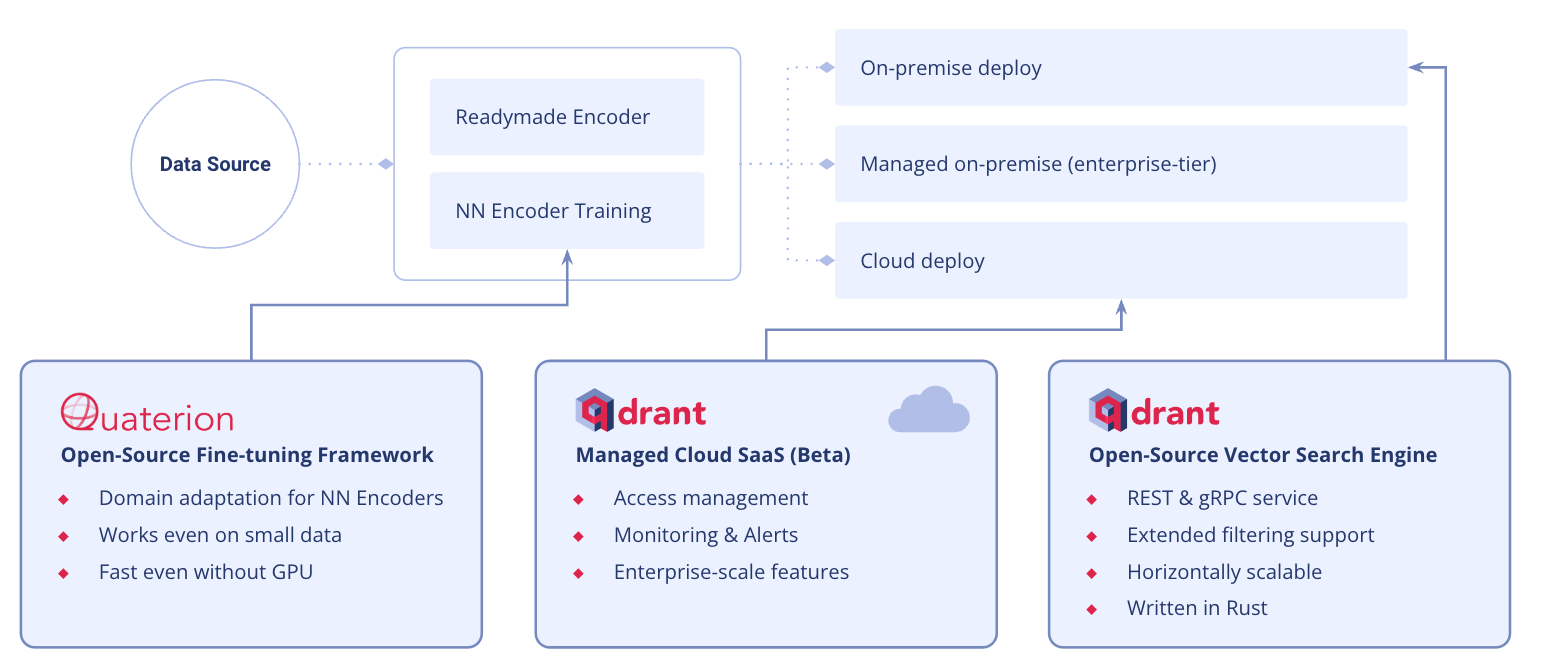Qdrant, an open-source vector database startup, founded in 2021 in Berlin, is aiming to provide developers with a powerful tool for leveraging unstructured data in AI applications. The platform offered by the organization (Qdrant) is aimed at helping developers in creating apps that can make sense of an enormous amount of data, even when that data is unstructured and challenging to process.
Qdrant recently revealed a $7.5 million seed round led by Unusual Ventures, with participation from 42cap, IBB Ventures, and a few angel investors, including Cloudera co-founder Amr Awadallah. This funding will allow Qdrant further commercialize its technology. This is in addition to the $2,2 million in pre-seed funding that Qdrant raised last year in the amount of €2 million.
A vector database at its core, Qdrant enables users to store and query enormous datasets of vectors, which are essentially collections of integers that represent data points in a multidimensional space. These vectors can be used to train machine learning models or to power AI applications. They can represent anything, including images, text, and audio.

According to Gartner, unstructured data makes up up to 90% of all new data created in businesses and is expanding three times more quickly than structured data. Andre Zayarni, CEO and co-founder of Qdrant, believes that the lack of the appropriate tools is the primary reason why the vast majority of AI research and development (R&D) projects never reach the production stage. In the end, being able to connect an LLM to real-time, unstructured data can open up a wealth of opportunities for anyone looking to develop more useful AI applications.
Since the Qdrant platform is based on open-source technology, developers can readily adapt it to meet their unique requirements. This adaptability can be very useful for the developers to create apps according to their specific needs.
One of the key advantages of Qdrant is its ability to handle unstructured data. Unstructured data is well-known for being very difficult to work with, because it could contain social media postings, photographs or even audio recordings. By leveraging vectors, Qdrant is able to provide a way to make sense of this data and use it to power AI applications.

Qdrant has already attracted attention from a number of high-profile investors, including Y Combinator and Atomico. AI experts like Alex Krizhevsky, the co-founder of the ImageNet dataset have exteded their support to Qdrant.
Overall, Qdrant is a promising startup that has the potential to revolutionize the way that developers work with unstructured data in AI applications. With its open-source approach and powerful vector database technology, Qdrant is well-positioned to become a key player in the AI space.






Comments